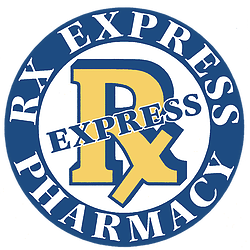2020-10-09 13:47:00
Jill Murphy, Assistant Editor
A new poll has found that most people over 50 years of age have not connected with a pharmacist to check for potential clashes among their prescription drugs, non-prescription drugs, and supplements, or the potential to save money by switching to lower-cost options.
The findings come from the National Poll on Health Aging based at the University of Michigan’s Institute for Healthcare Policy and Innovation with support from AARP and Michigan Medicine, which draws on responses from a national sample of more than 2000 adults between 50 and 80 years of age who answered a wide range of questions online.
The poll found that approximately two-thirds of older adults rely on at least 2 prescription drugs and more than half take 2 or more non-prescription drugs or supplements. Further, 2 in 10 take 5 or more prescription drugs.
The poll shows that 85% of Medicare Part D enrollees who had not had a medication review did not know they could be eligible for one, with 86% of all older adults without a medication review said they were not aware that it could be covered.
“Since older adults with multiple chronic illnesses and medications, high medication costs and Part D Medicare coverage may qualify for a covered medication review, and their health plans are graded publicly on how many qualified participants receive a review, our finding that so many are unaware of the option is surprising,” said Karen B. Farris, PhD, MPA, a professor of clinical pharmacy, in a press release.
The study authors noted that the older adults at the highest risk of drug interactions, or those taking 5 or more prescription medications, were more likely to have had a comprehensive medication review than those taking fewer medications, though there is still room for improvement.
The older that a poll respondent was, the more likely they were to take multiple prescription and OTC medications. In all, 30% of those over 65 years of age took 5 or more prescription medications, compared with 19% of those 50 to 64 years of age. In addition, 15% of those over 65 years of age said they take 5 or more OTC medications, vitamins and supplements, compared with 9% of those in their 50s and early 60s.
Study author Preeti Malani, MD, added that every older adult should keep a list of everything they take, whether they obtain it via a prescription or buy it directly.
“It’s also important to make sure you tell your doctors and other health care providers about everything you take, even over-the-counter vitamins or herbal remedies,” Malani said in a press release. “Not only may they spot potential risks, but the computer systems that they use to track your care might identify potential interactions.”
REFERENCE
Clashing medications can put older adults at risk, but many haven’t had a pharmacist check for safety concerns. Michigan Institute for Healthcare Policy & Innovation. https://ihpi.umich.edu/news/clashing-medications-can-put-older-adults-risk-many-havent-had-pharmacist-check-safety. Published October 7, 2020. Accessed October 8, 2020.
